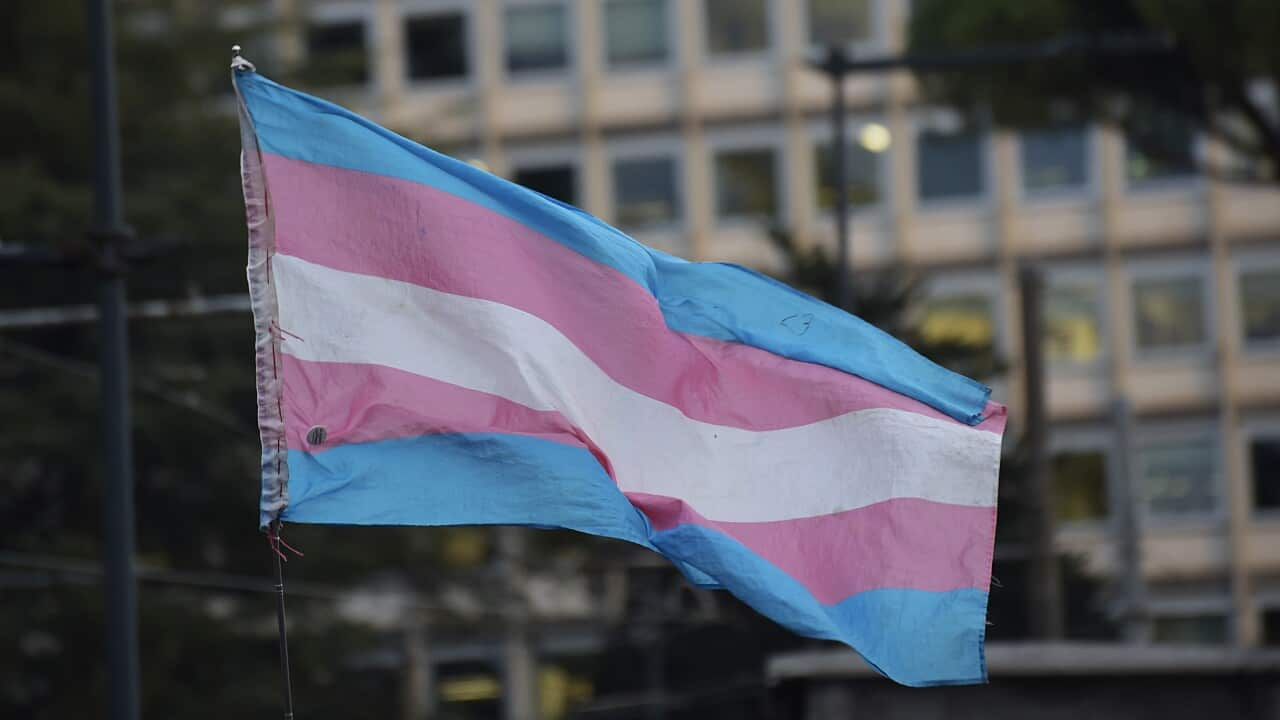Key Points
- The government has announced a review into gender-affirming healthcare for trans and gender-diverse young people.
- The health minister has also urged Queensland not to continue with a plan to pause access to treatment for children.
- LGBTIQ+ health groups have cautiously welcomed the federal government's announcement.
Australia's peak medical body will review the health care provided to transgender and gender-diverse children as the federal government attempts to stall the banning of puberty blockers in some parts of the country.
The review, led by the National Health and Medical Research Council, will examine aspects of children's gender-affirming care including the use of puberty blockers, Health Minister Mark Butler announced on Friday.
"It is imperative there is community confidence that Australian children, adolescents and their families are receiving the most appropriate care," he said.
Butler said he has tasked the council with developing new guidelines for trans healthcare, in an area the council has described as "contested and evolving".
Guidelines on the use of puberty blockers will be completed by mid-2026, with other advice not yet given a completion date.
Butler says Queensland plan not 'appropriate'
The announcement comes two days after the Queensland government immediately paused gender-affirming care including puberty blockers and hormone therapies for any new patients under 18 while an investigation into the services is carried out.
The move came after reports that gender-affirming hormones had been given to minors as young as 12 years of age without authorised care in the state's far north.
Butler said he has asked Queensland's health minister Tim Nicholls to abide by national standards.

Federal Health Minister Mark Butler said he didn't think the Queensland government's plan to conduct a state-based review into healthcare for trans and gender-diverse people was appropriate. Source: AAP / Mick Tsikas
"These issues should be nationally consistent."
Advocates criticised Queensland's plans when they were announced earlier this week, with Equality Australia CEO Anna Brown saying such a move would be "catastrophic for young trans people and their families".
"This move is at odds with the current evidence base, expert consensus, health services in all other Australian states and territories and the majority of clinical guidelines around the world," Brown said in a statement on Tuesday.
Brown backed Butler's calls for the Queensland government to suspend its review on Thursday.
"Politicians should not be in the business of making medical decisions for young people and families they have never met and whose experience of life are unimaginable to most of them," Brown said in a statement.
LGBTIQ+ health groups welcome review but urge caution
Health experts and LGBTIQ+ groups have cautiously welcomed the federal government's announcement, stressing a need for the process to be led by experts, be free of political interference, and not block healthcare for young people.
Nicky Bath, chief executive of LGBTIQ+ Health Australia, said the review had been requested by clinicians. Bath said it provides an "opportunity to end individual jurisdictional reviews that can disrupt best practice treatments as we have seen in Queensland".
Professor Ashleigh Lin, president of the Australian Professional Association for Trans Health (AusPATH), said the inclusion of people with lived experience, alongside expert researchers and frontline clinicians, would be crucial to the process.
"AusPATH will fight to ensure that the voices of experts and the needs of trans young people remain central to the delivery of safe, evidence-based healthcare."
The issue has come under global scrutiny with the UK's controversial Cass review ultimately leading to the National Health Service restricting the use of puberty blockers in children.
In the United States, President Donald Trump for children.
Butler said he has been cautiously watching the issue unfold internationally.
"I've given deep consideration to this area over the course of summer, given movements overseas," he said.
He said the review would be evidence-based and he was "not interested in playing politics with the issue".
"Not all of the (commentary) is particularly constructive, and some of it, frankly, is quite damaging to the mental health of young people and families."











